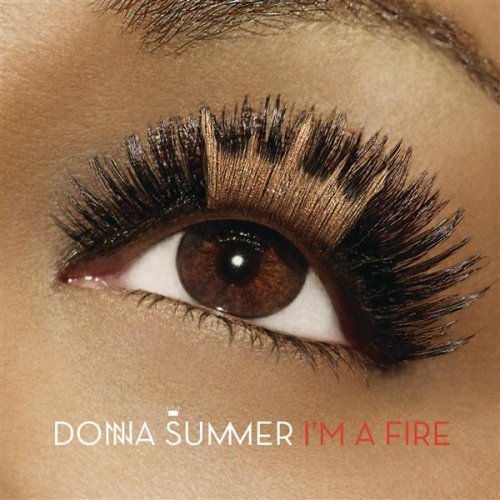Carol wrote:
This is really cool JT! I can already envision us up in the tower library with pots of tea and books spread out all about. Where's the dragon?





"Come not between the dragon, and his wrath."
William Shakespeare




 SOME DAMN GOOD WRITING TIPS FOR YOU AVALURKERS!!! PEACE JT!
SOME DAMN GOOD WRITING TIPS FOR YOU AVALURKERS!!! PEACE JT! 
1. Cut the boring parts
I try to leave out the parts that people skip. ~Elmore Leonard
Unless you’re writing for personal reasons alone, you need to consider the attention of your readers. There’s no point is publishing content that isn’t useful, interesting, or both.
2. Eliminate unnecessary words
Substitute “damn” every time you’re inclined to write “very;” your editor will delete it and the writing will be just as it should be. ~Mark TwainI used to feel that using words like “really”, “actually”, or “extremely” made writing more forceful. It doesn’t. They only get in the way. Cut them and never look back.
3. Write with passion
Fill your paper with the breathings of your heart. ~William Wordsworth
It’s not hard to realize that unless you’re excited about your writing no one else will be.
4. Paint a picture
Don’t tell me the moon is shining; show me the glint of light on broken glass. ~Anton Chekhov
Simply stating something is fine, but when you need to capture attention, using similes, metaphors, and vivid imagery to paint a picture creates a powerful emotional response.
5. Keep it simple
Vigorous writing is concise. ~William Strunk Jr.
Maybe it was all those late nights, struggling to fill out mandatory 10 page papers, but many people seem to think that worthwhile writing is long and drawn out. It’s more difficult (and effective) to express yourself in the simplest possible manner.
6. Do it for
 Write without pay until somebody offers to pay. ~Mark Twain
Write without pay until somebody offers to pay. ~Mark TwainWhen you’re just starting out it’s hard to decide where to begin. So don’t. Just start writing. A blog is a good place to start. The most valuable benefit is the feedback.
7. Learn to thrive on criticism
You have to know how to accept rejection and reject acceptance. ~Ray Bradbury
Writing means putting yourself at the mercy of anonymous hecklers and shameless sycophants. Learn to make the most of the insults and distrust the praise.
8. Write all the time
Quantity produces quality. If you only write a few things, you’re doomed. ~Ray BradburyThe way you define yourself as a writer is that you write every time you have a free minute. If you didn’t behave that way you would never do anything. ~John Irving
9. Write what you know … or what you want to know
If any man wish to write in a clear style, let him be first clear in his thoughts; and if any would write in a noble style, let him first possess a noble soul. ~Johann Wolfgang von GoetheLearn as much by writing as by reading. ~Lord Acton
Successful writing is all about trust and authority. It makes sense to write about your area of expertise. If you don’t have an expertise, reading and writing is the best way to develop one and put it on display.
10. Be unique and unpredictable
I owe my success to having listened respectfully to the very best advice, and then going away and doing the exact opposite. ~G.K. ChestertonConsistency is the last refuge of the unimaginative. ~Oscar WildeZest. Gusto. How rarely one hears these words used. How rarely do we see people living, or for that matter, creating by them. Yet if I were asked to name the most important items in a writer’s make-up, the things that shape his material and rush him along the road to where he wants to go, I could only warn him to look to his zest, see to his gusto. ~Ray Bradbury
75 Synonyms for “Talk”
1. Babble: enthusiastic or excessive talk, or meaningless sounds or nonsense words; to talk in this manner
2. Back talk: a disrespectful response; to respond disrespectfully
3. Backchat: see back talk, badinage, and gossip
4. Badinage: light, witty talk
5. Banter: see badinage, with a connotation of good-natured teasing or arguing; to engage in such talk
6. Barb: a hurtful and/or critical comment
7. Blandish: see cajole
8. Blandishments: see cajolery/cajolement
9. Blarney: nonsensical talk
10. Bluster: boastful or threatening talk; to speak boastfully or threateningly
11. Cackle: see chatter (verb only)
12. Cajole: to persuade with soothing or flattering remarks
13-14. Cajolery/cajolement: talk with the intent to persuade
15. Causerie: see chat (noun only)
16. Chaff: see badinage; also, to tease good-naturedly
17. Chat: an idle or inconsequential conversation; to engage in such talk
18. Chatter: quick, extensive, and/or aimless talk; to talk in such a manner
19. Chin music: see chat (noun only)
20. Chinwag: informal talking; to talk informally
21. Chitchat: see badinage
22. Circumlocution: evasive or verbose talk
23. Comment: an opinion or observation; to say something of this type
24. Confab: see chat (also, a formal meeting)
25. Confabulation: see chat and confab (also, something made up)
26. Confer: to exchange opinions or seek advice
27. Conference: a meeting, or an event consisting of presentations and/or meetings
28. Confess: to admit to a thought or action considered improper or shameful
29. Conversation: a talk between or among two or more people
30. Converse: to speak back and forth with one or more people
31. Crack: an uncomplimentary comment; also, to quickly say something, as when spontaneously telling a joke pertinent to a situation
32. Dig: see crack
33. Discuss: to engage in serious talk
34. Discussion: a serious talk
35. Dish: see gossip
36. Double-talk: intentionally confusing or ambiguous language, or talk that is at least partially meaningless; to engage in such talk
37. Fast-talk: to persuade or influence by deceptively authoritative and/or flattering speech
38. Flibbertigibbet: see gossip
39. Gab: see chatter
40. Gabfest: talking consisting of gab
41. Give-and-take: an exchange of ideas or comments
42. Gossip: see chat, with an additional connotation of talk or talking about the personal lives of one or more other people (also, someone who engages in such talk)
43. Jangle: see chat
44. Jaw: see chat
45. Jest: a humorous or mocking statement; to make such a statement
46. Natter: see chat
47. Negotiate: to talk in order to reach an agreement
48. Negotiation: a talk in which the speakers seek to reach an agreement
49. Palaver: a discussion or conference, especially one between unequal participants, or deceptive speech, or see chat; to talk idly, try to persuade or deceive, or come to terms
50. Parley: see confer, with the possible connotation of talk between antagonists to agree to terms to cease hostilities; to engage in such talk
51. Patter: quick or monotonous speech, as in delivering a humorous speech or in rote delivery of prayers; to speak in this manner
52. Pillow talk: romantic talk, such as would be engaged in while the speakers are in bed
53. Pleasantry: polite, inconsequential talk, or see banter and jest (nouns only)
54. Quip: a spontaneous observation or response; to say something of this type
55. Raillery: see banter and jest
56. Rap: see chat and patter
57-58. Recital/recitation: public delivery of read or memorized material, or of details or answers
59. Recite: to deliver read or memorized material, or details or answers
60. Remark: a statement of judgment or opinion, or a reference to something notable; to comment in this manner
61. Repartee: an exchange of clever, witty statements, a single such response, or skill in talking in this manner
62. Schmooze: see chat, with the connotation of one conducted so as to gain personal or professional advantage; to talk in this manner
63. Small talk: see badinage
64. Spit: to talk about things or opinions a listener disagrees with or disapproves of
65. Straight talk: frank, straightforward talk
66. Sweet nothings: flattering talk intended to charm a potential or existing romantic partner
67. Sweet talk: talk intended to persuade, or to endear oneself to the speaker; to engage in this kind of talk (the verb form is hyphenated)
68. Table talk: informal talking such as that heard during a dinner party
69. Tete-a-tete: an intimate or private talk
70. Waggery: see banter and jest
71. Wisecrack: a clever or sarcastic comment; to make such a comment
72. Wordplay: witty, playful talk
73. Yack: to talk at length
74. Yammer: to talk relentlessly, or to complain
75. Yap: excessive talk (also, slang for mouth)
Now, without further delay, the 34 writing tips that will make you a better writer!
1. Daniel
Pay attention to punctuation, especially to the correct use of commas and periods. These two punctuation marks regulate the flow of your thoughts, and they can make your text confusing even if the words are clear.
2. Thomas
Participate in NaNoWriMo, which challenges you to write a 50,000 word novel in a month. I noticed that my writing has definitely improved over the course of the book — and it’s not even finished yet.
3. Bill Harper
Try not to edit while you’re creating your first draft. Creating and editing are two separate processes using different sides of the brain, and if you try doing both at once you’ll lose. Make a deal with your internal editor that it will get the chance to rip your piece to shreds; it will just need to wait some time.
A really nice trick is to switch off your monitor when you’re typing. You can’t edit what you can’t see.
4. Jacinta
In a sentence: write daily for 30 minutes minimum! It’s easy to notice the difference in a short time. Suddenly, ideas come to you and you think of other things to write. You experiment with styles and voices and words and the language becomes more familiar…
5. Ane Mulligan
Learn the rules of good writing… then learn when and how to break them.
6. Pete Bollini
I sometimes write out 8 to 10 pages from the book of my favorite writer… in longhand. This helps me to get started and swing into the style I wish to write in.
7. Nilima Bhadbhade
Be a good reader first.
8. Douglas Davis
While spell-checking programs serve as a good tool, they should not be relied
upon to detect all mistakes. Regardless of the length of the article, always read and review what you have written.
9. Kukusha
Learn to take criticism and seek it out at every opportunity. Don’t get upset even if you think the criticism is harsh, don’t be offended even if you think it’s wrong, and always thank those who take the time to offer it.
10. John England
Right click on a word to use the thesaurus. Do it again on the new word and make the best use of your vocabulary.
11. Lillie Ammann
After editing the work on screen or in print, I like to read the text aloud. Awkward sentences and errors that slipped through earlier edits show up readily when reading out loud.
12. H Devaraja Rao
Avoid wordiness. Professor Strunk put it well: “a sentence should contain no unnecessary words, a paragraph no unnecessary sentences, for the same reason that a drawing should have no unnecessary lines and a machine no unnecessary parts.”
13. David
Write as if you’re on deadline and have 500 words to make your point. Then do it again. And again.
14. Yvette
Sometimes I type in a large font to have the words and sentences bold before me.
Sometimes, in the middle of a document I will start a new topic on a fresh sheet to have that clean feeling. Then, I’ll cut and insert it into the larger document.
I wait until my paper is done before I examine my word usage and vocabulary choices. (And reading this column it has reminded me that no two words are ever exactly alike.) So at the end, I take time to examine my choice of words. I have a lot of fun selecting the exact words to pinpoint my thoughts or points.
15. Amit Goyal
To be a good writer is to start writing everyday. As Mark Twain said, “the secret of getting ahead is getting started.”
Try using new words. i.e avoid repeating words. this way we learn the usage of different words.
Do edit your previous articles.
Start with small paragraphs like writing an article for a Newspaper, and proceed from there.
16. John Dodds
Remove as many adjectives as possible. Read Jack Finney’s tale, Cousin Len’s Wonderful Adjective Cellar for a fantastical tale about how a hack becomes a successful author with the help of a magical salt cellar that removes adjectives from his work.
17. John Ireland
I set my writing aside and edit a day or two later with the aim of making it terse. It has trained me to be more conscious of brevity when writing for immediate distribution.
18. Jai
Try to write in simple way. Express your views with most appropriate words.
19. Mark
Read great writers for inspiration. If you read them enough, their excellent writing style will rub off onto your dazzling blog.
YOU ARE what you read (and write!).
20. Caroline
I watch my action tense and wordiness in sentences when I am writing my technical diddley.
For example, in a sentence where you say …”you will have to…” I replace it with “…you must…”, or “Click on the Go button to…” can be replaced with “Click Go to…”.
Think of words such as “enables”, instead of “allows you to” or “helps you to”.
If one word will work where three are, replace it! I always find these, where I slip into conversational as I am writing quickly, then go back and purge, purge, purge.
21. Akhil Tandulwadikar
Don’t shy away from adopting the good habits that other writers use.
Do not worry about the length of the article as long as it conveys the point. Of course, the fewer words you use, the better.
Start the article with a short sentence, not more than 8 words.
22. Julie Martinenza
Instead of adding tags (he said/she said) to every bit of dialogue, learn to identify the speaker by showing him/her in action. Example: “Pass that sweet-smelling turkey this way.” With knife in one hand and fork in the other, Sam looked eager to pounce.
23. Aaron Stroud
Write often and to completion by following a realistic writing schedule.
24. Joanna Young
One that works for me every time is to focus on the positive intention behind my writing. What is it that I want to communicate, express, convey? By focusing on that, by getting into the state that I’m trying to express, I find that I stop worrying about the words – just let them tumble out of their own accord.
It’s a great strategy for beating writer’s block, or overcoming anxiety about a particular piece of writing, whether that’s composing a formal business letter, writing a piece from the heart, or guest blogging somewhere ‘big’…
25. Shelley Rodrigo
Use others writer’s sentences and paragraphs as models and then emulate the syntactic structure with your own content. I’ve learned more about grammar and punctuation that way.
26. Sylvia
Avoid long sentences.
27. Mike Feeney
Learn the difference between me, myself and I. For example: “Contact Bob or myself if you have any questions.” I hear this very often!
28. Richard Scott
When doing a long project, a novel, for instance, shut off your internal editor and just write.
Think of your first draft as a complex outline waiting to be expanded upon, and let the words flow.
29. David
Careful with unnecessary expressions. “At this point in time” came along during the Nixon congressional hearings. Too bad it didn’t go out with him. What about “on a daily basis?”
30. E. I. Sanchez
For large documents, I use Word’s Speech feature to have the computer read the article back. This allows me to catch errors I have missed – especially missing words or words that ’sort of sound the same’ but are spelled differently (e.g. Front me instead of ‘From me’).
31. Cat
Either read the book “Writing Tools 50 Strategies for Every Writer”, by Roy Peter Clark, or read the Fifty Writing Tools: Quick List on his blog. Then join a writing group, or hire a writing coach.
32. Suemagoo
Write the first draft spontaneously. Switch off your internal editor until it is time to review your first draft.
33. Lydia
If you’re writing fiction, it’s a great idea to have a plot. It will coordinate your thoughts and add consistency to the text.
34. Pedro
Edit your older articles and pieces. You will notice that great part of it will be crap, and it will allow you to refine your style and avoid mistakes that you used to make.





























 impressive susan!
impressive susan!





























